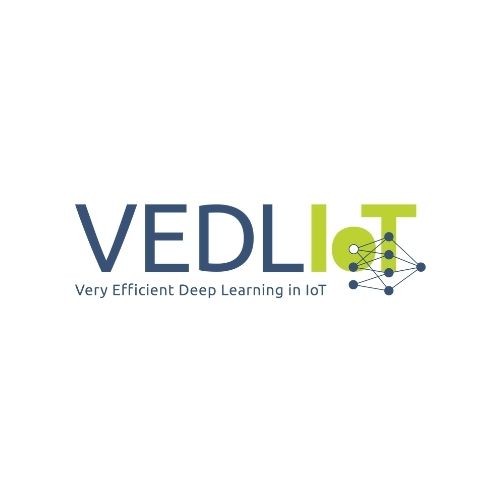The ever-increasing performance of computer systems in general and IoT systems, in particular, delivers the capability to solve increasingly challenging problems, pushing automation to improve the quality of our life. This triggers the need for a next-generation IoT architecture, satisfying the demand for key sectors like transportation (e.g. self-driving cars), industry (e.g. robotization or predictive maintenance), and our homes (e.g. assisted living). Such applications require building systems of enormous complexity, so that traditional approaches start to fail. The amount of data collected and processed is huge, the computational power required is very high, and the algorithms are too complex allowing for the computation of solutions within the tight time constraints. In addition, security, privacy, or robustness for such systems becomes a critical challenge.
An enabler that aims at delivering the required keystone is VEDLIoT, a Very Efficient Deep Learning IoT platform. Instead of traditional algorithms, artificial intelligence (AI) and deep learning (DL) are used to handle the large complexity. Due to the distributed approach, VEDLIoT allows dividing the application into smaller and more efficient components and work together in large collaborative systems in the Internet of Things (IoT), enabling AI-based algorithms that are distributed over IoT devices from edge to cloud.
In terms of hardware, VEDLIoT offers a platform, the Cognitive IoT platform, leveraging European technology, which can be easily configured to be placed at any level of the compute continuum starting from the sensor nodes and then edge to cloud. Driven by use cases in the key sectors of automotive, industrial, and smart homes, the platform is supported by cross-cutting aspects satisfying security and robustness. Overall, VEDLIoT offers a framework for the Next Generation Internet based on IoT devices required for collaboratively solving complex DL applications across a distributed system.
